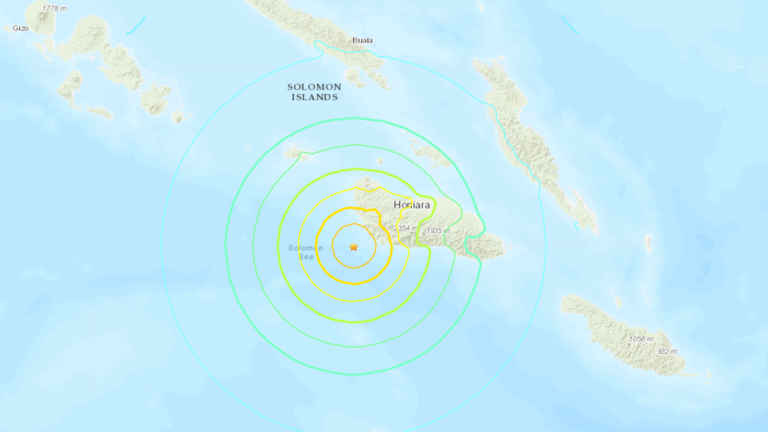
A 7.0-magnitude quake has hit the Solomon Islands, briefly prompting fears of a tsunami.
A powerful magnitude 7.0 earthquake has struck near the Solomon Islands, with the Pacific Tsunami Warning Center saying that hazardous waves are possible for several islands in the region, including Papua New Guinea and Vanuatu.
The quake struck around 2am GMT on Tuesday, some 56 kilometers (35 miles) southwest of the capital, Honiara. It was followed by a 6.0 aftershock roughly 30 minutes later, as well as several other weaker jolts in the area, according to the United States Geological Survey.
The office of Solomon Islands Prime Minister Manasseh Sogavare said there was no major damage in the capital city and did not note any casualties, but added that the quakes have triggered power outages. The islands’ official broadcasting agency, meanwhile, reported that all radio services were down.
The US Pacific Tsunami Warning Center issued a “hazardous tsunami waves” advisory following the quake, saying waters could reach up to one meter above the tide level for the Solomons, and up to 30 centimeters along the coasts of Papua New Guinea and Vanuatu.
However, the Solomon Islands Meteorological Service later said there was no risk of a tsunami, though the agency still warned of unusually strong sea currents in some coastal areas. Residents were “advised to be vigilant as aftershocks are expected to continue,” Director of Meteorology David Hiriasia said on social media.
The Solomon Islands sit on an earthquake-prone region of the Australian tectonic plate known as the “Ring of Fire.” It is one of the most seismically active areas in the world due to constant convergences between the Australian and Pacific plates, which press against one another and create enormous pressures capable of producing quakes.
The massive earthquake on Tuesday morning came less than one day after another major 5.6-magnitude quake struck Indonesia – which also sits along the ‘Ring of Fire’ – killing more than 100 people, according to the country’s National Disaster Management Agency. Most of the casualties resulted from collapsing buildings, and as of Tuesday morning rescuers were still searching through debris for survivors.